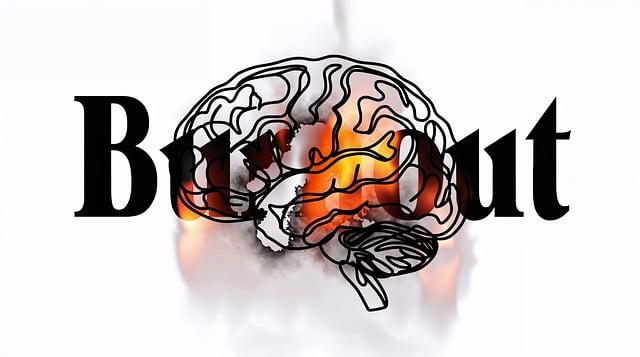Colorado Springs Geriatrics Therapy emphasizes risk assessment as a cornerstone of delivering safe, effective mental health care. By evaluating clients' unique vulnerabilities—from past traumas and substance abuse to social isolation and co-morbidities—therapists tailor interventions. This comprehensive approach, incorporating Trauma Support Services, ensures personalized treatment plans that address specific needs. Ongoing risk assessments also enable proactive safety management, crucial for managing severe mental health challenges. The therapy practice considers the unique challenges of therapists and elderly clients in Colorado Springs' specific environment, employing empathy-building strategies and evidence-based practices to create a supportive healing atmosphere. Through robust risk management, regular training, and policy advocacy, Colorado Springs Geriatrics Therapy maintains high-quality care that is responsive to both therapist and client needs.
Mental health professionals constantly face complex challenges, with risk assessment playing a crucial role in ensuring patient safety. This article explores comprehensive risk management for practitioners specializing in Colorado Springs Geriatrics Therapy. We delve into understanding risk assessment fundamentals, identifying unique risks within this specific therapy context, and implementing robust strategies.
Through examining real-world scenarios, we guide professionals through continuous evaluation and updating of risk assessment protocols, fostering a dynamic approach to patient care in the vibrant landscape of Colorado Springs Geriatrics Therapy.
- Understanding Risk Assessment in Mental Health Practice
- Identifying Risks Specific to Colorado Springs Geriatrics Therapy
- Implementing Effective Risk Management Strategies
- Continuous Evaluation and Updating of Risk Assessment Protocols
Understanding Risk Assessment in Mental Health Practice

Risk assessment is a fundamental aspect of mental health practice, crucial for ensuring safe and effective care. It involves systematically evaluating potential hazards and vulnerabilities within an individual’s life, enabling Colorado Springs Geriatrics Therapy professionals to tailor interventions accordingly. This process encompasses various factors, such as past traumas, substance abuse history, social isolation, and co-morbidities, which can impact a client’s mental health and overall well-being.
By incorporating Trauma Support Services and understanding the interplay between these risk factors, therapists can develop comprehensive treatment plans. Moreover, ongoing risk assessments facilitate proactive management of client safety during therapy, especially when addressing complex issues like severe depression or suicidal ideation. The Mental Wellness Podcast Series Production often highlights the importance of such assessments in promoting recovery and preventing adverse outcomes, while Mental Health Policy Analysis and Advocacy drives efforts to enhance service delivery and support for at-risk populations.
Identifying Risks Specific to Colorado Springs Geriatrics Therapy

In the context of Colorado Springs Geriatrics Therapy, identifying risks requires a nuanced understanding of the unique challenges faced by both therapists and their elderly clients. This urban setting, with its diverse population, presents specific considerations. For instance, the rapid pace of city life can exacerbate existing mental health issues, particularly in an aging demographic that may struggle with social isolation and reduced mobility. The high altitude and distinct climate also have physiological impacts, potentially influencing emotional well-being.
Therapists practicing in Colorado Springs Geriatrics Therapy must be adept at employing empathy building strategies to connect with clients. This is crucial for fostering trust and open communication. Given the prevalence of cognitive decline and related conditions, therapists should be skilled in techniques that enhance emotional regulation and anxiety relief. By integrating evidence-based practices tailored to these risks, they can create a supportive environment that promotes healing and meaningful therapeutic outcomes.
Implementing Effective Risk Management Strategies

Mental health professionals in Colorado Springs Geriatrics Therapy must adopt robust risk management strategies to ensure a safe and supportive environment for their clients. This involves a multifaceted approach, beginning with comprehensive risk assessments that identify potential hazards and vulnerabilities. By evaluating factors such as past trauma, substance abuse, or acute crises, therapists can tailor interventions and create personalized care plans.
Implementing practices like Mindfulness Meditation and Burnout Prevention techniques not only enhances therapists’ resilience but also fosters healthier client relationships. Crisis Intervention Guidance plays a crucial role in equipping professionals with the skills to handle urgent situations effectively. Regular staff training and ongoing supervision are essential components of risk management, ensuring that everyone is prepared to navigate challenges and deliver high-quality care.
Continuous Evaluation and Updating of Risk Assessment Protocols

In the dynamic field of mental health care, where patient needs and societal perspectives evolve continually, it’s imperative that risk assessment protocols remain agile and adaptable. At Colorado Springs Geriatrics Therapy, we recognize that effective risk management isn’t a one-time task but an ongoing process. Regular, comprehensive reviews and updates to risk assessment strategies are essential to ensure they align with the latest research, clinical insights, and changing legal landscapes. This continuous evaluation ensures our protocols remain robust and responsive, facilitating safer and more culturally sensitive practices.
Integrating Mental Health Policy Analysis and Advocacy into this framework is vital. By staying abreast of policy developments and advocating for evidence-based practices, we can shape a mental healthcare environment that prioritizes both patient safety and Cultural Sensitivity in Mental Healthcare Practice. This proactive approach not only mitigates risks but also fosters inclusive and effective therapy for diverse patient populations.
Mental health professionals in Colorado Springs Geriatrics Therapy must continually refine their risk assessment practices. By understanding specific risks, implementing robust management strategies, and regularly evaluating protocols, therapists can ensure a safe and effective therapeutic environment for both clients and themselves. This proactive approach not only minimizes potential harms but also fosters a culture of resilience and continuous improvement within the field.














